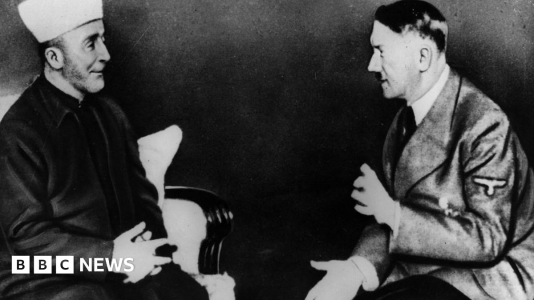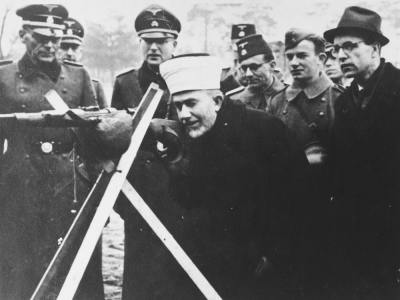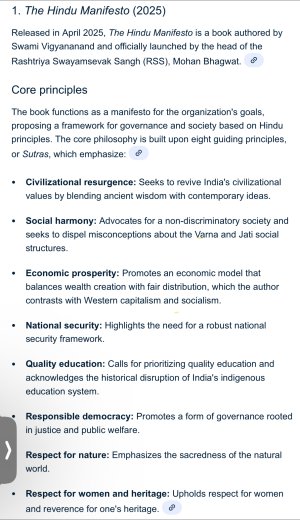You are an Atheist and my Job is not to convince you to become Muslim and there is no chance that you will agree
I am a Muslim and it is not your Job to convince you to become Atheist and there is no chance that I will agree
However, within our paradigms it is possible for us to a polite discussion to try to understand each other's perspectives and that requires:
Polite Conversation with honesty and integrity
Attempt to understand each other's evidence and perspective
When our points are understood or categorically refuted then not to change the argument or keep on insisting and beating around the bush needlessly
Lets take a single example from your bullet points:
Pact of Umar (RA):
Online Source: Boston University
Published Source: Jacob Marcus, The Jew in the Medieval World: A Sourcebook, 315-1791, (New York: JPS, 1938), 13-15)
Jewish commentary before the Pact: THE Pact of Umar is the body of limitations and privileges entered into by treaty between conquering Muslims and conquered non-Muslims. We have no special treaty of this sort with the Jews, but we must assume that all conquered peoples, including the Jews, had to subscribe to it. Thus the laws cited below and directed against churches apply to synagogues too. The Pact was probably originated about 637 by Umar I after the conquest of Christian Syria and Palestine. By accretions from established practices and precedents, the Pact was extended; yet despite these additions the whole Pact was ascribed to Umar. There are many variants of the text and scholars deny that the text as it now stands could have come from the pen of Umar I; it is generally assumed that its present form dates from about the ninth century.
The Pact of Umar has served to govern the relations between the Muslims and "the people of the book," such as Jews, Christians, and the like, down to the present day.
In addition to the conditions of the Pact listed below,
the Jews, like the Christians, paid a head-tax in return for protection, and for exemption from military service. Jews and Christians were also forbidden to hold government office. This Pact, like much medieval legislation, was honored more in the breach than in the observance. In general, though, the Pact increased in stringency with the centuries and was still in force in the 20th century in lands such as Yemen. The Pact is in Arabic.
Wording of the Pact of Umar (RA):
In the name of God, the Merciful, the Compassionate!
This is a writing to
Umar from the Christians of such and such a city. When You [Muslims] marched against us [Christians],: we asked of you protection for ourselves, our posterity, our possessions, and our co-religionists; and we made this stipulation with you, that we will not erect in our city or the suburbs any new monastery, church, cell or hermitage; that
we will not repair any of such buildings that may fall into ruins, or renew those that may be situated in the Muslim quarters of the town; that we will not refuse the Muslims entry into our churches either by night or by day; that we will open the gates wide to passengers and travellers; that we will receive any Muslim traveller into our houses and give him food and lodging for three nights; that we will not harbor any spy in our churches or houses, or conceal any enemy of the Muslims. [At least six of these laws were taken over from earlier Christian laws against infidels.]
That we will not teach our children the Qu'ran [some nationalist Arabs feared the infidels would ridicule the Qu'ran; others did not want infidels even to learn the language]; that we will not make a show of the Christian religion nor invite any one to embrace it; that we will not prevent any of our kinsmen from embracing Islam, if they so desire. That we will honor the Muslims and rise up in our assemblies when they wish to take their seats; that we will not imitate them in our dress, either in the cap, turban, sandals, or parting of the hair; that we will not make use of their expressions of speech, nor adopt their surnames [infidels must not use greetings and special phrases employed only by Muslims]; that we will not ride on saddles, or gird on swords, or take to ourselves arms or wear them, or engrave Arabic inscriptions on our rings; that we will not sell wine [forbidden to Muslims]; that we will shave the front of our heads; that we will keep to our own style of dress, wherever we may be; that we will wear girdles round our waists [infidels wore leather or cord girdles; Muslims, cloth and silk].
That we will not display the cross upon our churches or display our crosses or our sacred books in the streets of the Muslims, or in their market-places; that we will strike the clappers in our churches lightly [wooden rattles or bells summoned the people to church or synagogue]; that we will not recite our services in a loud voice when a Muslim is present; that we will not carry Palm branches [on Palm Sunday] or our images in procession in the streets; that at the burial of our dead we will not chant loudly or carry lighted candles in the streets of the Muslims or their market places; that we will not take any slaves that have already been in the possession of Muslims, nor spy into their houses; and that we will not strike any Muslim.
All this we promise to observe, on behalf of ourselves and our co-religionists, and receive protection from you in exchange; and if we violate any of the conditions of this agreement, then we forfeit your protection and you are at liberty to treat us as enemies and rebels.
Historical Context:
Christians had barred Jews from Jerusalem
- Christianshanded over the city of Jerusalem to Umar (RA)
Umar (RA) respected the city, did not ransack it, did not ruin it, he refused to pray in the
Church of the Holy Sepulchre despite being the conqueror out of respect!
Umar (RA) didn't rape women, Umar (RA) didn't destory any Churches, Umar (RA) didn't commit any genocide!
Umar (RA) allowed Jews back into Jerusalem into a city which Muslims had conquered (through a treaty)
Muslims had conquered this city so as per the customs (of war) and for security they barred Christians (whom they were just fighting) from public office!
Jerusalem is a holy city for Muslims so placed conditions on "other religions" absolutely which is not the case in any other city.
For example
Veranasi (India) had open and public processions under Islamic rule in India with no issues
What do you have to do?
I could quote you Islamic sources but notice that I have not done that. The pact of Umar as I have seen multiple times in the shops and businesses of Christian in Palestine differs from this Jewish reference in wording but I have deliberately given you a Jewish version deliberately and on purpose for you to to take your best shot at pact of Umar (RA)
- You raised the issue of "Pact of Umar" in the context of Jews
- Without lying, deceiving, changing the topic please explain the relevance of "Pact of Umar (RA)" within the context of Jews
Nobody is asking you to be convinced of Islam or become a fan of Umar (RA) asking to take your best shot but do so honestly and truthfully.
If you pivot and start discussing Christians or Veransi because I have mentioned it, you will be dishonest because your point was in the context of Jews
You or any other Hindu or Atheist can take your best and most honest shot on Islam and be direct, there is no blasphemy and no disrespect here but be honest and truthful and provide authentic and credible sources.
Thanks
Lets see what he does.



















